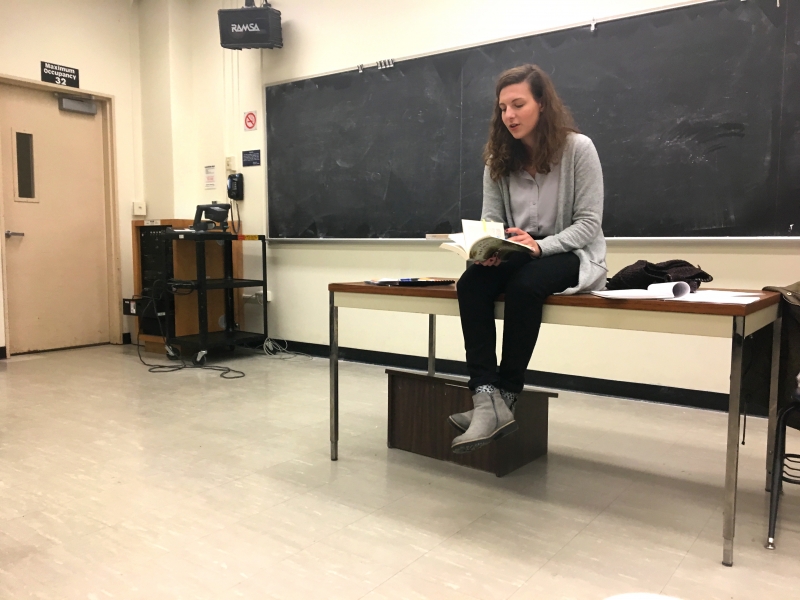German Exchange: Alica Buck Teaches ENL3

Every year, UC Davis English exchanges PhD students with the prestigious Johannes Gutenberg University in Mainz, Germany. This year, we are hosting Alica Buck, who is writing a dissertation on literature and the environment in Germany. Here, she has been teaching our introductory course English 3. We asked Alica four questions about how it’s going.
What do you like best about UC Davis so far?
There are two main things that I like most about UC Davis so far:
Number one are the people. Everyone is really welcoming and willing to help me with adjusting to life in Davis in general and teaching in the English department in particular. I also learn a lot from my students as they improve my teaching as well as my understanding of texts with their interpretations and insights.
Number two is the campus itself. Having an actual campus is not necessarily a given in Germany, since university buildings are sometimes scattered all over the city. Although Mainz has a campus, it is very different compared to the UC Davis campus. People seem to really take advantage of the many places available to sit outside to work or relax in-between classes. I like being able to just go outside and sit on one of the many benches or take a walk through the Arboretum.
How has teaching in the US been different from teaching in Germany?
Deciding on literary texts that are interesting to teach for me but also to read for my students has been very challenging at first but has developed into something exciting. Texts that I love and find highly ambiguous and challenging can turn out to be rather straightforward to my students at first glance which challenges me to think outside the box.
Could you talk a little about your research?
My research focuses on national parks as an institution and their role in the ongoing discussion about the nature-culture dichotomy. With political climates changing in the U.S. and environmental protection at risk, national parks are facing new challenges in how to preserve the so called natural world and in how to educate the public about these issues. My ethnographic approach, however, also challenges the institution itself as it questions the relationship of human and non-human actors in national parks and their role in the debate on nature-culture dualism.
What's something you've learned since you've come to California?
I’ve learned that I’m even more passionate about teaching at a university level and a career in academia that I’ve been before and that teaching abroad helps me making progress in both my research and my way of teaching.
(More about the Davis student spending the year in Germany here: http://english.ucdavis.edu/news-events/news/news-our-phd-student-germany)

